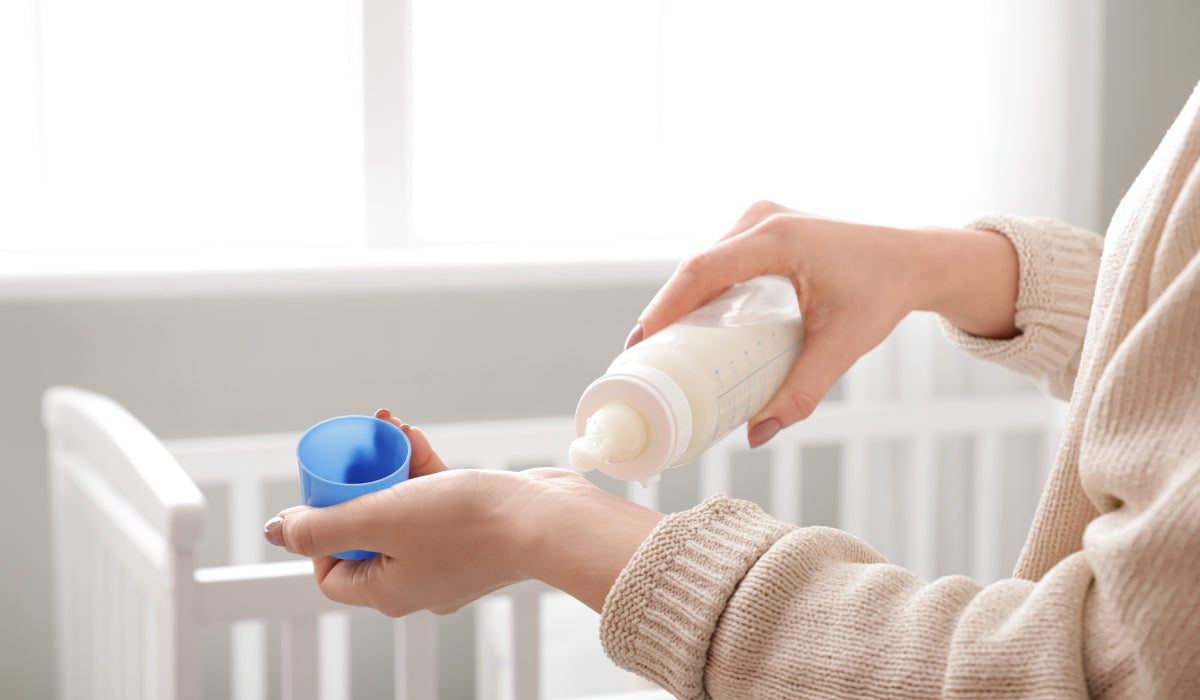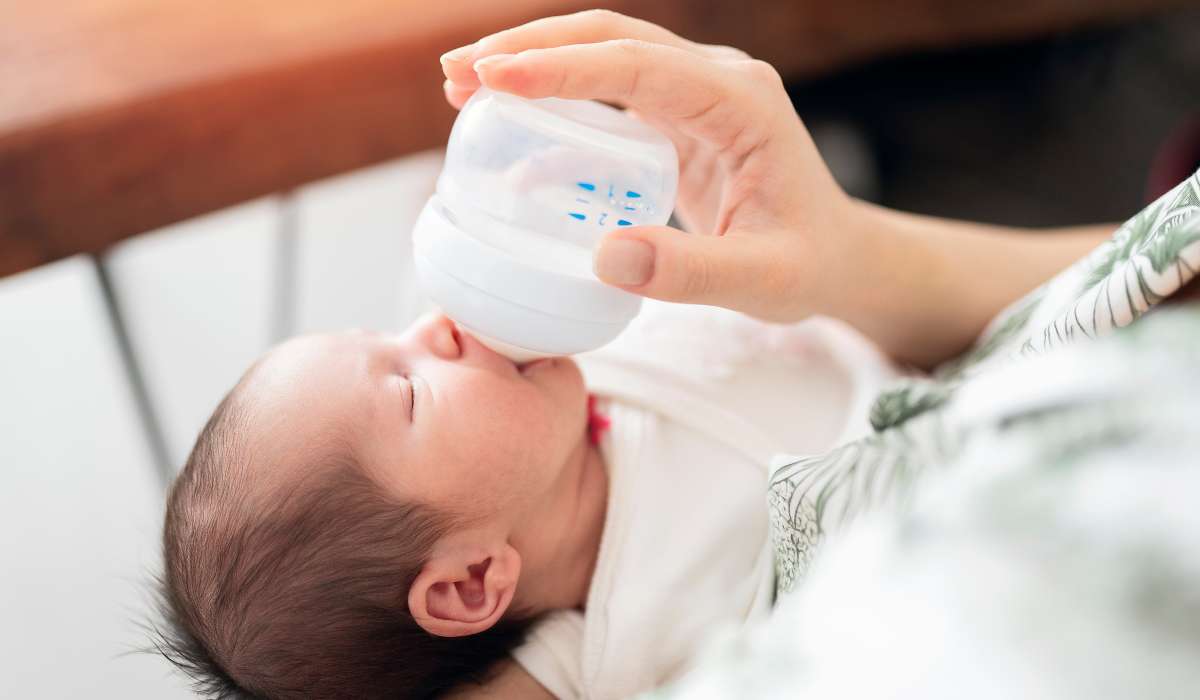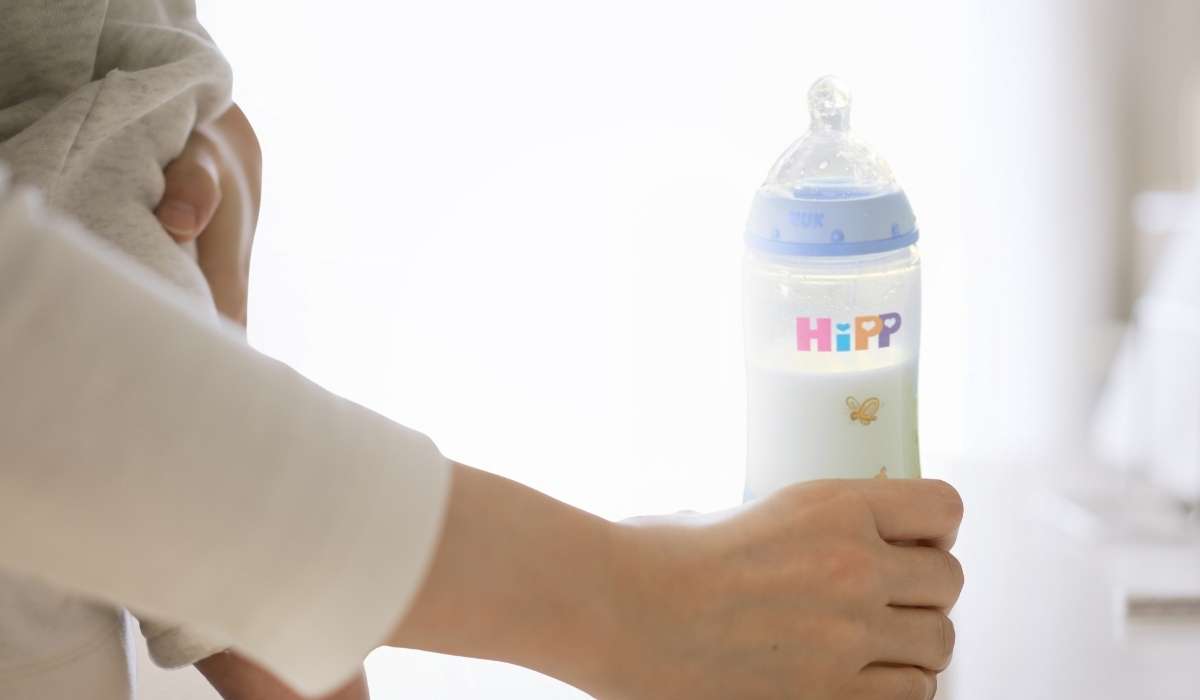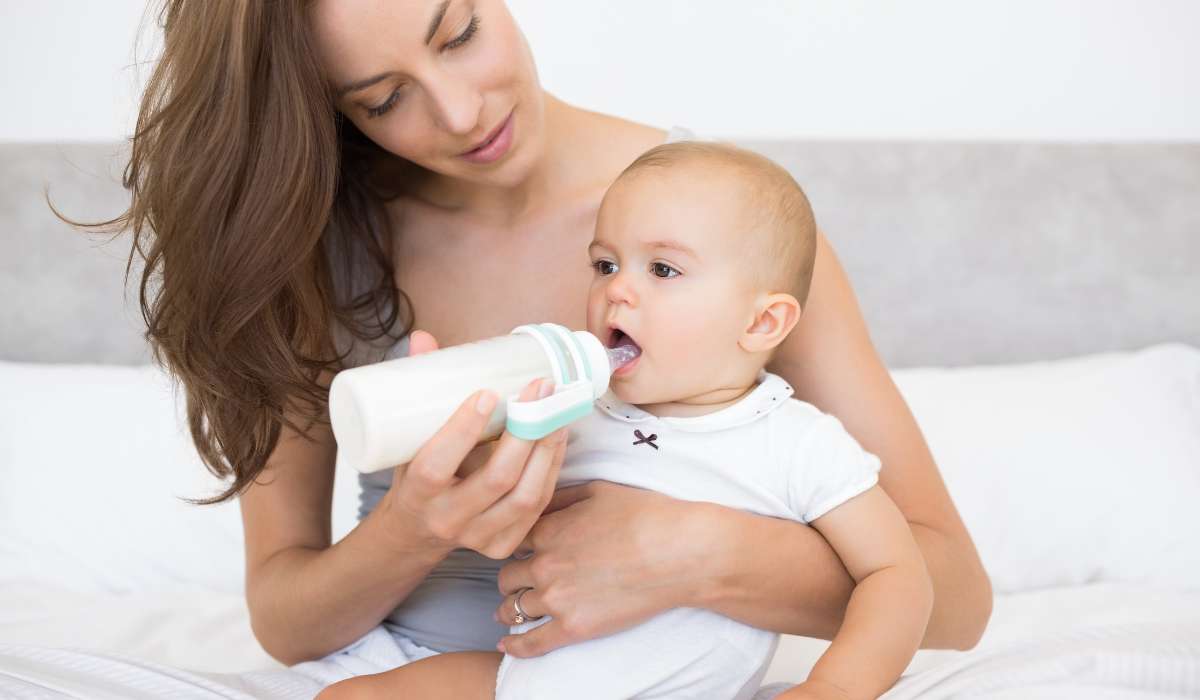Baby formula is a tricky subject, especially if you're a new parent who's learning how to make sure you do everything right when making up your baby's bottle.
If, in this discovery process, you're wondering to yourself, 'does formula have to be warm?' know that you're not alone. One of the biggest challenges parents face when dealing with liquid or powdered infant formula is the temperature.
That's why in today's guide, we will uncover the truth about warm vs room-temperature formula, plus share safety tips that can help you ensure your baby stays healthy and happy every step of the way!
Contents
Infant Formula Temperature Recommendations: Cold or Warm Formula?
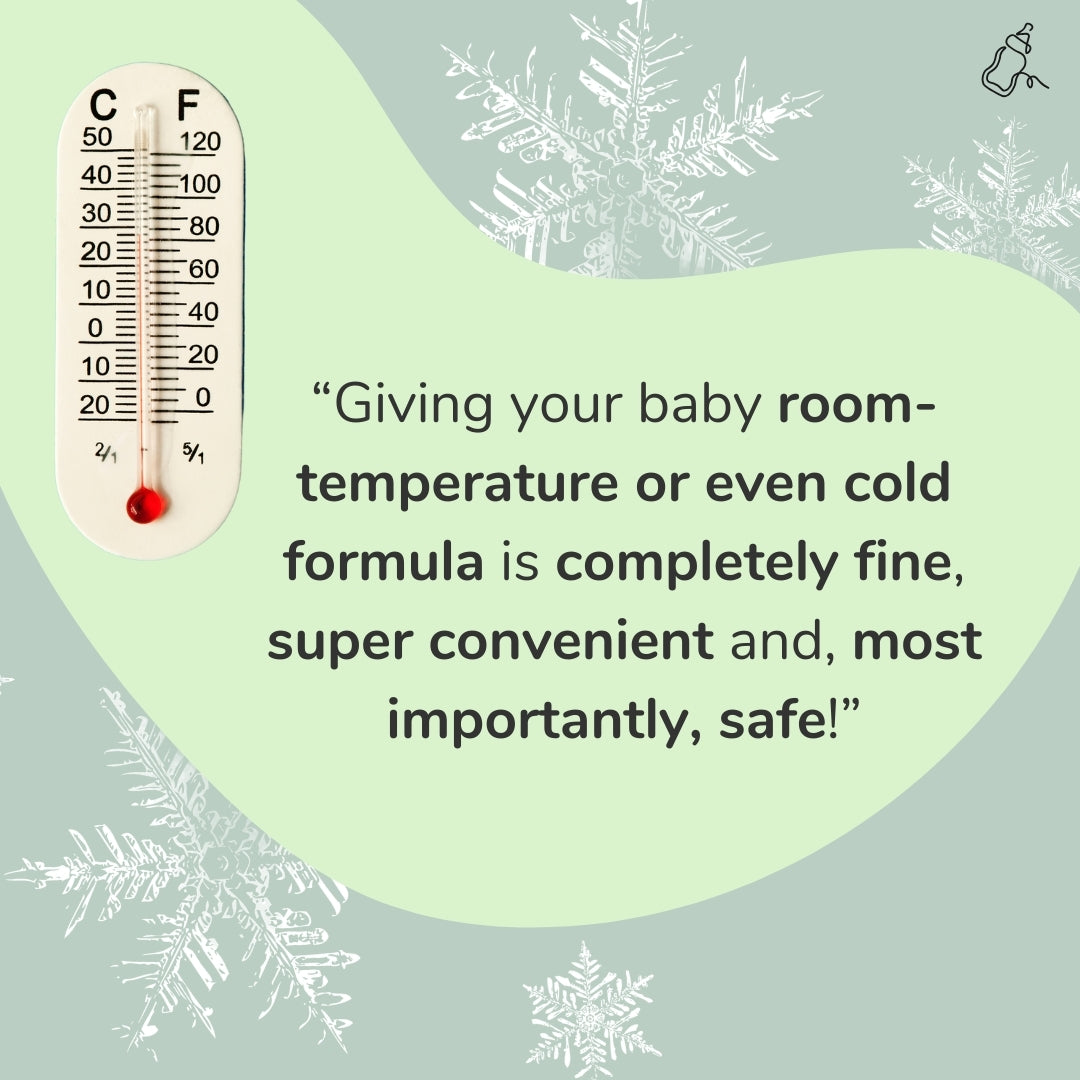
Good news, mums and dads, infant health experts agree unanimously that it's not necessary to warm up baby bottles before feeding. Giving your baby room-temperature or even cold formula is completely fine, super convenient and, most importantly, safe!
Benefits of Serving Formula at Room Temperature
Whether you prefer to use infant formula powder or a liquid concentrate, serving your baby's bottles cold or lukewarm offers plenty of benefits:
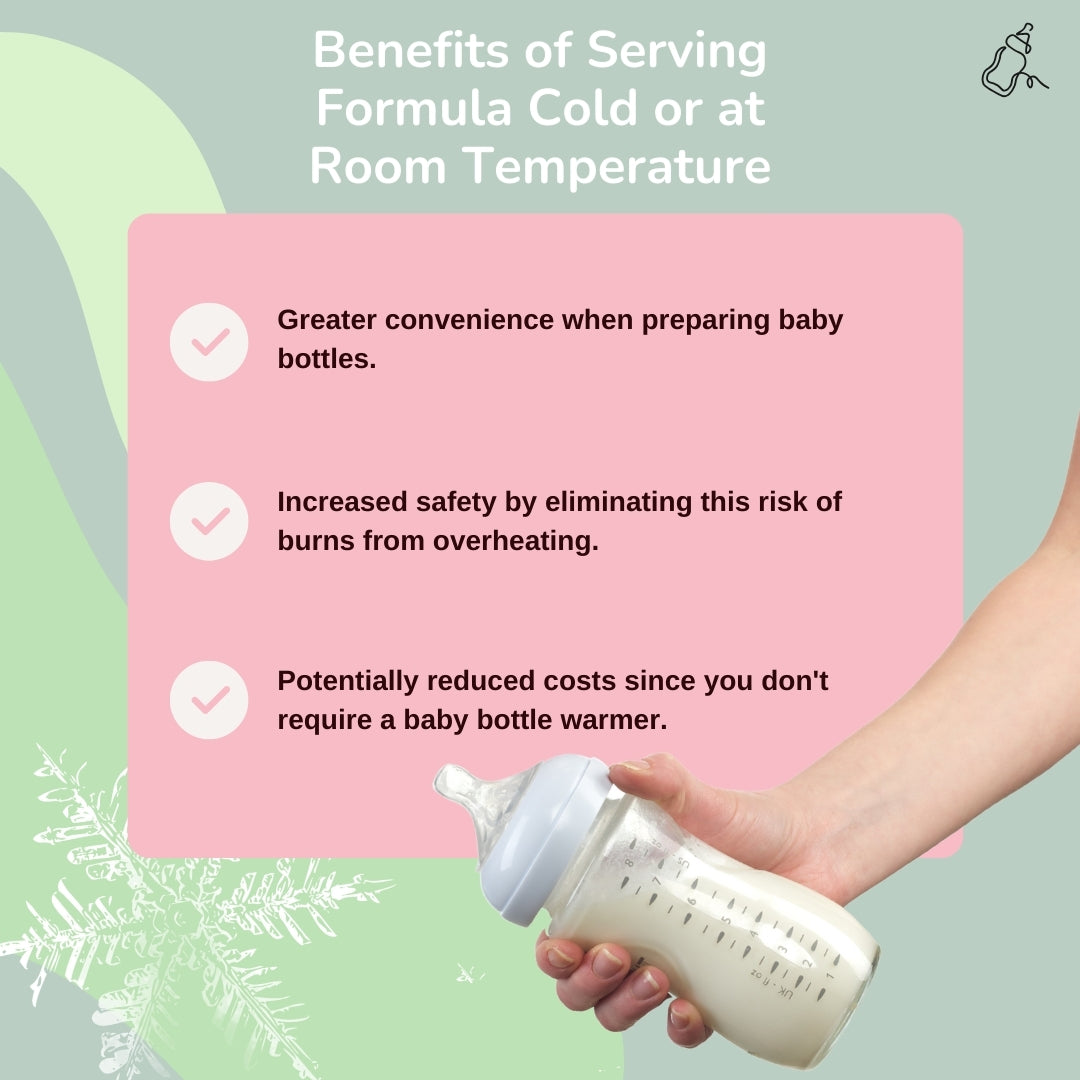
#1 Greater convenience when preparing baby bottles
If your baby doesn't mind cold formula, you're in luck; now, you can save a lot of time during each feeding. Preparing formula without the need for warm bottles is much easier and faster, which can come in especially handy during those late-night feeds when you're still feeling half asleep!
#2 Increased safety of your baby's bottles
Many parents warm formula so their little one is more willing to drink their bottle. The reasoning behind this is that it will remind them of naturally warm breast milk. Truth be told, a warm bottle, when heated correctly, can certainly hit the spot.
However, it's important to remember that when it comes to warm formula, there's always a risk of mistakes happening, in which case burns from overheating are a possibility.
Thankfully, with cold or room temperature formula, you can skip out on the bottle warmers and bowls of boiled water to eliminate this risk.
#3 Potentially reduced costs
When you don't need to warm up your baby's bottle, you use less electricity (or hot water, if you prefer the "warm bath" method). There's also no need to buy a fancy baby bottle warmer. This means you can save quite a bit of money. And we all know raising a baby is expensive, so it's always nice to save at least a couple of dollars when you can.
Potential Drawbacks of Cold or Room Temperature Formula
When considering the drawbacks of serving a cold baby bottle, there honestly aren't many, but it's still important to be aware of a few key considerations:
So, here are the potential cons of feeding your baby without warming their formula up:
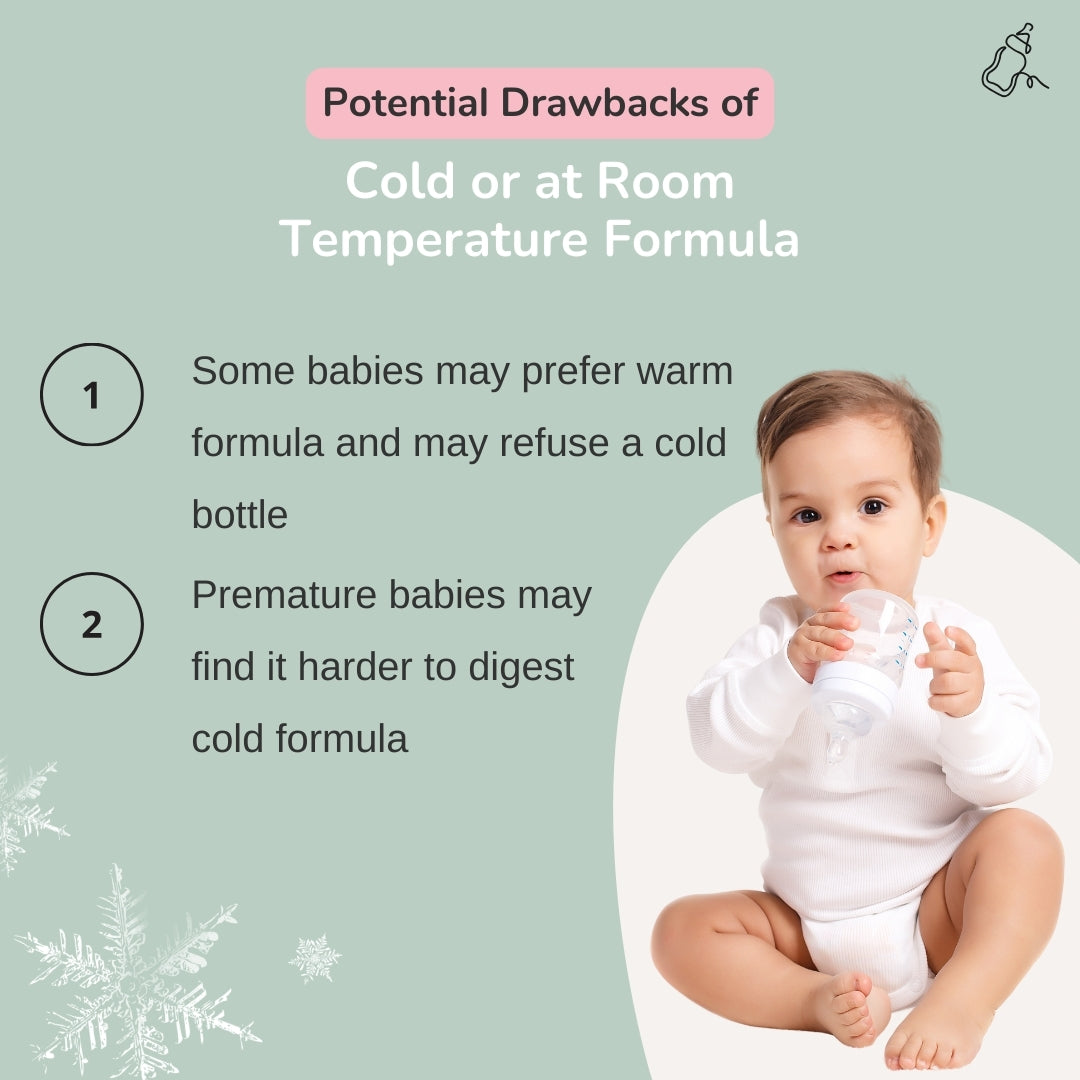
Some more opinionated babies prefer warm formula and may refuse a cold bottle. This doesn't mean that cold formula is bad for your little one. It's simply an illustration of their preferences - just like some people love pineapple on pizza, and others hate it.
And here's another important step: to make a transition from warm to cold formula easier for your baby, try to do it gradually. You can warm your baby's formula a little less every day until you reach the desired temperature.
Chances are, your little one won't even notice the change. And remember: adjusting takes time. It may take a few tries before your little one gets used to a cold baby bottle.
Are you thinking of feeding your preemie cold formula? It might be a bit tough on their tiny tummies. Premature babies often find it harder to digest cold stuff, and they really need all the nutrients they can get.
You might notice they don't take to cold feeds as easily, which can mean less food and slower growth. Plus, keeping warm is a bit of a struggle for these little ones, and cold formula doesn't help. For these reasons, a warm bottle is generally the way to go when it comes to premature babies.
How to Safely Serve Powdered Infant Formula
Safety is always the top priority when preparing a baby bottle. This means strictly following the manufacturer's directions and avoiding any alterations in the water-to-formula powder ratios. Beyond this, here are some connected safety steps to keep in mind:
Additionally, when using powdered formula, there's a seamless flow of preparation and storage safety rules that parents need to follow. These important rules include:
-
Cleaning the countertops and washing your hands before preparing formula.
-
Using the exact amount of formula scoops and water mentioned on the packaging. It's also crucial to only use the scoop provided by the manufacturer.
-
Sanitizing the bottles and all other feeding supplies before each use.
-
Always using safe water for mixing formula.
-
Don't use a microwave if you do decide to warm your baby's formula. Using a microwave to heat a bottle can create dangerous hot spots.
-
Using the prepared baby formula within 2 hours of mixing.
-
Discarding leftover formula right after feeding (keeping it, even in the fridge, can cause bacteria growth.
-
Storing unopened containers in a cool, dry place (and avoiding leaving them in your car or garage).
-
Keeping the opened container in a cool, dry place with a tightly closed lid (but not in the fridge or freezer).
-
Never using baby formula after the best-before date.
Frequently Asked Questions About Warm Formula
Still wondering about the right temperature for your baby's bottle? Let's quickly clear up some of the most common queries on this topic for you.
Can all types of formula be served at room temperature?
Absolutely! Powder, liquid concentrate, and ready-to-feed formulas can all be served at room temperature.
How do I know if my baby prefers room temperature or warm formula?
Typically, if a baby doesn't like the formula temperature, they will recoil from the bottle and may become fussy. That being said, infants get used to a certain routine relatively fast. So if your little one doesn't want room-temperature formula, they might just need a bit more time to get used to it.
Can room temperature formula cause digestive issues?
There's no evidence that cold or room-temperature formula negatively impacts your baby's digestion. However, keep in mind that premature babies may be more sensitive to cold temperatures.
Wrapping Up: Deciding if cold or room temperature formula is right for your baby
Does formula have to be warm? Well, as we've learned today, warming formula or keeping it cold is a personal choice. That being said, you can save a lot of time if you feed your baby with cold milk. Plus, this method has the added benefit of reducing the chance of overheating your baby's milk and potentially burning your baby's mouth.
Of course, in making this decision, your baby's preferences matter, too. And the best scenario is testing various temperatures to find the one that works the best for your little one!
When in doubt, remember that you can always talk to your baby's pediatrician. They can offer personalized advice, and together, you can find the ideal solution to keep your baby happy and healthy!
Breast milk is the best source of nutrition for babies. Before altering your baby's diet or feeding routine, consult your healthcare provider for personalized recommendations. The information in this article is strictly for informational purposes and is not a substitute for medical advice.

